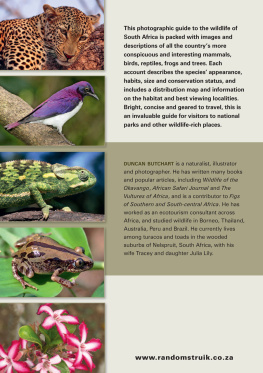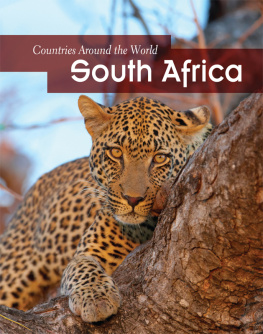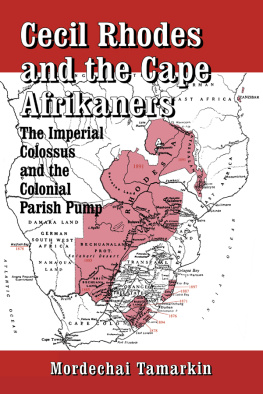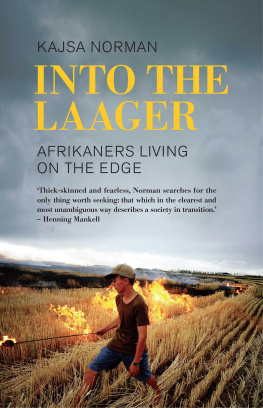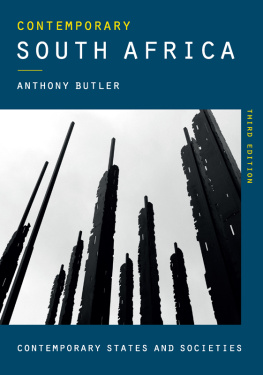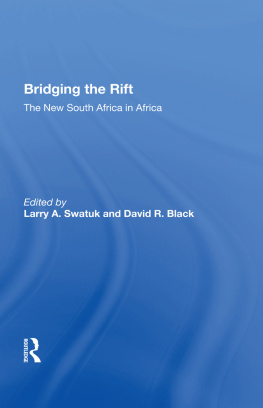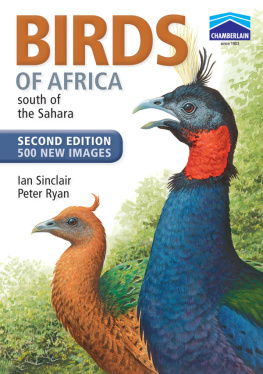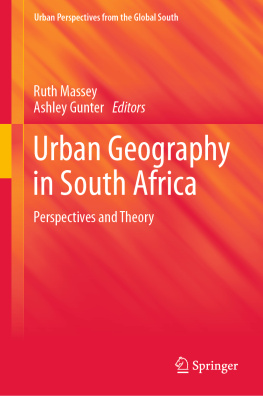First published in 1991 by
Kegan Paul International Limited
This edition first published in 2009 by
Routledge
2 Park Square, Milton Park, Abingdon, Oxon, OX14 4RN
Simultaneously published in the USA and Canada
by Routledge
270 Madison Avenue, New York, NY 10016
Routledge is an imprint of the Taylor & Francis Group, an informa business
Afrika-Studiecentrum 1991
Transferred to Digital Printing 2009
All rights reserved. No part of this book may be reprinted or reproduced or
utilised in any form or by any electronic, mechanical, or other means, now
known or hereafter invented, including photocopying and recording, or in
any information storage or retrieval system, without permission in writing
from the publishers.
British Library Cataloguing in Publication Data
A catalogue record for this book is available from the British Library
ISBN 10: 0-7103-0353-X (hbk)
ISBN 13: 978-0-7103-0353-0 (hbk)
Publisher's Note
The publisher has gone to great lengths to ensure the quality of this reprint
but points out that some imperfections in the original copies may be
apparent. The publisher has made every effort to contact original copyright
holders and would welcome correspondence from those they have been
unable to trace.
I dedicate this work to myOom Daantjie, Tannie Trui, Willem, Karel who knew me in Ceres, and Andre and Chris, who discovered me in Amsterdam.
Preface
The river ran from the mountains, twisting through my town, and flowed into the sea. Just before the railway line, there was the pastorie (rectory) of the Dutch reformed dominee (Reverend). As a child growing up in the Cape, my family knew the dominee and his family well. On the right hand side of the railwayline, straight across from the rectory, was a graveyard. It had an oxwagon as a monument the symbol of the Great Trek of the Afrikaner in 1836.
Onze Jan (Hofmeyer) was also buried here this intellectual giant of Afrikanerdom, who with the Reverend S.J. du Toit were the key figures in the Afrikaner Bond at the turn of the nineteenth century. In later years, they veered towards Cecil John Rhodes thus losing some of their status. The Dutch governor, against whom young Bibault's cri de coeur , Ik ben een Africaander was directed at the beginning of the eighteenth century, also found solace under the mountains of my town.
Some of my boyhood friends were Afrikaners who lived next door. I remember one in particular, Marius, who sat for his final high school exams at the same time as I did. He did not make it. Just prior to my exit, I saw him in the uniform of the airforce. I still wonder about him.
In my mother's ancestral home town, I had close friends whose father was an Afrikaner proper and the mother coloured. The poor man's name was erased from the family Bible. The children resembled Afrikaners, but were conditioned by a culture and an ideology which doomed them to roles of inferiority. Their father was the loneliest man I had ever come across in a town which was populated mostly by Afrikaners and coloureds and completely Afrikaans-speaking.
I have spoken Afrikaans all my life. Even now, when I write home to friends and my family, I use that language. Like the Flemish language pioneer, Jan Frans Willems, I underscore the maxim: De Taal is gansch het Volk i.e. the language is the entire people.
I have read some of the most lyrical prose and poetry in the Afrikaans language. Even in exile, I still recall the beautiful descriptions of a Sangiro, or lines from the poet Leipoldt.
I have no political attitude towards the language, although I have analysed and understood the attitudes of oppressed South Africans to it. I can even fully sympathise with Miriam Makeba's utterance in her recent biography that Afrikaans is the language of genocide, although academically I do not accept such a statement.
Afrikaans is polluted with terminologies denigrating to the man of colour: the language of the police, of law and order and oppression. But in exile I have learnt that Dutch, or English for that matter, fulfilled similar roles in Indonesia and India. It is when man oppresses man that he taints his language. And now that I have substituted Dutch for Afrikaans in my daily life, I can analyse the language situation between 1845 and 1899 in a much more detached manner; I can, on the basis of empirical evidence postulate: Afrikaans too can be used by the oppressed to achieve their freedom.
I have young Afrikaners coming to visit me with their problems. They are now struggling with the problem of accepting blacks as full human beings, of throwing overboard a culture and an ideology that for centuries has caused them to accept their roles as masters. For these youngsters, there is the painful realisation that once they have crossed the political Rubicon, they are in a proverbial wilderness. It is, after all, not so easy to turn from a group unto itself into a group for others overnight.
There were also nets flying at me to hold me back from flight long ago. But the final decision to leave and to contribute to a free society was made easy by the existence of a culture and a political ideology which doomed the majority of South Africans to servitude. It is this culture and ideology that I have tried to come to grips with, in a language, Afrikaans, I have spoken all my life.
It was not an easy task. There was always the chance of succumbing only to vituperation. Hopefully, my passionate opposition to unfreedom and oppression in my country was firmly hinged by empirical observation. The Afrikaners of South Africa , is the consequence of my cultural and academic involvement with a people who created a culture and an ideology which, regrettably, can now only be interpreted in terms of the vast network of unfreedom for the majority of South Africans.
Much has been written on the present-day situation in South Africa. Understandably, many of the books reflect the class background of the authors. An analysis of South Africa is often complicated by the fact of racism. Since Afrikaners are the major architects of the apartheid system, the approach to questions concerning the group was often an ethno-epidermic one. Afrikaner scholars went out of their way to prove that they were unique as a Volk , while non-Afrikaners were fascinated by this species as a peculiar human type with a peculiar language and a peculiar culture. The Afrikaner himself was incapable of turning from a group unto itself, into a group for others. Afrikanerdom was often seen as something extraneous to Western capitalism, with the emphasis on the peculiarities.
Afrikaners themselves had no small hand in fostering this image of themselves a chosen group not completely sucked into the vortex of finance-capitalism, but with a continuing Western tradition and divine sanction. Afrikaner analysts who looked at the own group and the own society were invariably flag-wavers, brothers-under-the-skin Those who during the centuries dared to deviate from the group norm and ethos, soon found themselves outside the tribe. Even the respected Church minister Ds (Rev) S.J. du Toit, who played such a significant role in the first Afrikaans language movement, found himself abandoned by the tribe when his Afrikaner Bond started to support Rhodes at the turn of the century. S.J. du Toit was luckier than most since he was one of the pioneers who fought so courageously for the recognition of Afrikaans. As such, he can never be ignored in textbooks. Others had no such luck at a later stage; even the well-known Afrikaner statesman, General J.C. Smuts, who fought in the Boer War but who as Prime Minister of South Africa sided with the allies during the Second World War, cannot count on much sympathy from Afrikaner die-hards. The Reverend Beyers Naud, whose father was one of the founders of the secret Afrikaner society, the Broerderbond, experienced the wrath of his tribe when he broke with their apartheid philosophy.




